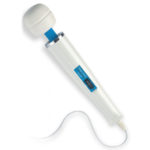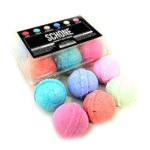Every few weeks, Dr. Vanessa Cullins, a board-certified obstetrician/gynecologist and vice president for medical affairs at Planned Parenthood® Federation of America, will be answering your questions on EMandLO.com. To ask her your own question, click here.
Dear Dr. Vanessa,
What should I be doing (or not doing) to have the healthiest vulva/vagina? (Foods, cleaning, etc.)
— Spring Cleaning
Dear S.C.,
Treating your lady parts to a little TLC by backing off the multitude of vulvar and vaginal cosmetics that stack drugstore shelves is a great place to start. A lot of women don’t understand what is best for the good health of their vulvas and vaginas. They get all kinds of conflicting ideas from friends and relatives. Many women, for example, douche. Douching can cause vaginitis, so the first rule is: don’t douche unless your doctor or nurse advises you to do so.
Nobody wants a stinky bottom. Wipe well, always from front to back, after urination and bowel movements. Always make sure that you are not contaminating your vaginal opening or opening to the bladder with bowel movement. You may even consider fragrance-free wipes for use when you experience a particularly messy toilet experience or for more regular use when you are on your menstrual period or if you experience particularly heavy bleeds. Wash your vulva (the outside of your vagina) daily with mild soap and water. Rinse well and dry thoroughly after washing. Let towels dry between uses, and don’t share them. Keep the area around your genitals as dry as possible, so avoid sitting around in a wet bathing suit or gym clothes for prolonged periods of time, since the constant moisture might cause irritation or infection.
To keep your bottom dry, avoid wearing underwear and panty hose without cotton crotches or any kind of tight pants, pantyhose, or underwear that will prevent sweat from drying.
For more protection, avoid chemicals in perfumed or deodorant soaps, detergents, fabric softeners, bubble baths, powders, tampons, panty liners, and vaginal sprays. Also, you may want to forgo your next Brazilian bikini wax. It’s fine to remove hair from the area that is exposed while wearing a swimsuit, but a little hair down there is actually a good thing when it comes to protecting the vulva and preventing irritation.
Before or when you have sex, try to check your partner’s genitals for sores or discharge. Use a latex condom every time you have intercourse, unless you and your partner have no infections and no other sex partners.
In terms of dealing with infections that can irritate your vulva, eating plain yogurt containing live acidophilus cultures or taking tablets with acidophilus may reduce the risk of yeast infections. Remember, if you are being treated for vaginitis, be sure to use your entire prescription even if your symptoms have stopped. And don’t use anybody else’s medicine or medicine that has expired, as it won’t be powerful enough to take care of the infection. Use your medicine even if you get your period, and be sure to return for all your checkups.
Vaginitis is one of the most common reasons women seek health care. You should see your doctor or nurse whenever you have abnormal vaginal discharge and/or odor, irritation, bleeding, or pain, or whenever your symptoms have not been diagnosed or if your treatment is not working. It is best if you avoid intercourse during treatment. Having sex, especially if no condom is used, may aggravate your symptoms and interfere with the effectiveness of treatment. And remember, some medications for vulvar and vaginal infection are in an oil base which can weaken condoms and cause them to break — so not having sex until all medication has been used and the infection is gone is the best course of action.
Remember, in terms of daily care, for most women washing with mild soap and water once a day is all that is needed.
Thanks for the good question, and here’s to your continued sexual health,
Vanessa
Vanessa Cullins, MD, MPH, MBA, is a board-certified obstetrician/gynecologist and vice president for medical affairs at Planned Parenthood® Federation of America. She generously shares her medical wisdom with EM & LO readers every few weeks.


















If things do go wrong it can be very difficult to get back to a good balance. When this happened to me, my gynaecologist advised me not to use soap at all on or around my vulva. Instead she advised me to use aqueous cream to wash with. I’ve found this has really helped reduce recurrent thrush and infections.
It’s not very realistic to say don’t wear tight garments. It’s not possible to wear a skirt without tights in winter, and nearly all trousers are cut tight round the lady bits. Perhaps it would be better to say that if you’re wearing tight trousers or tights in the office/while travelling, make sure you get up and walk about at regular intervals to get some air circulating to dry out sweat etc.
Also don’t forget that some people have allergic reactions to latex, and that taking the pill puts one at greater risk of thrush and infections. Not to say one shouldn’t take the pill, but it has to be taken into account.